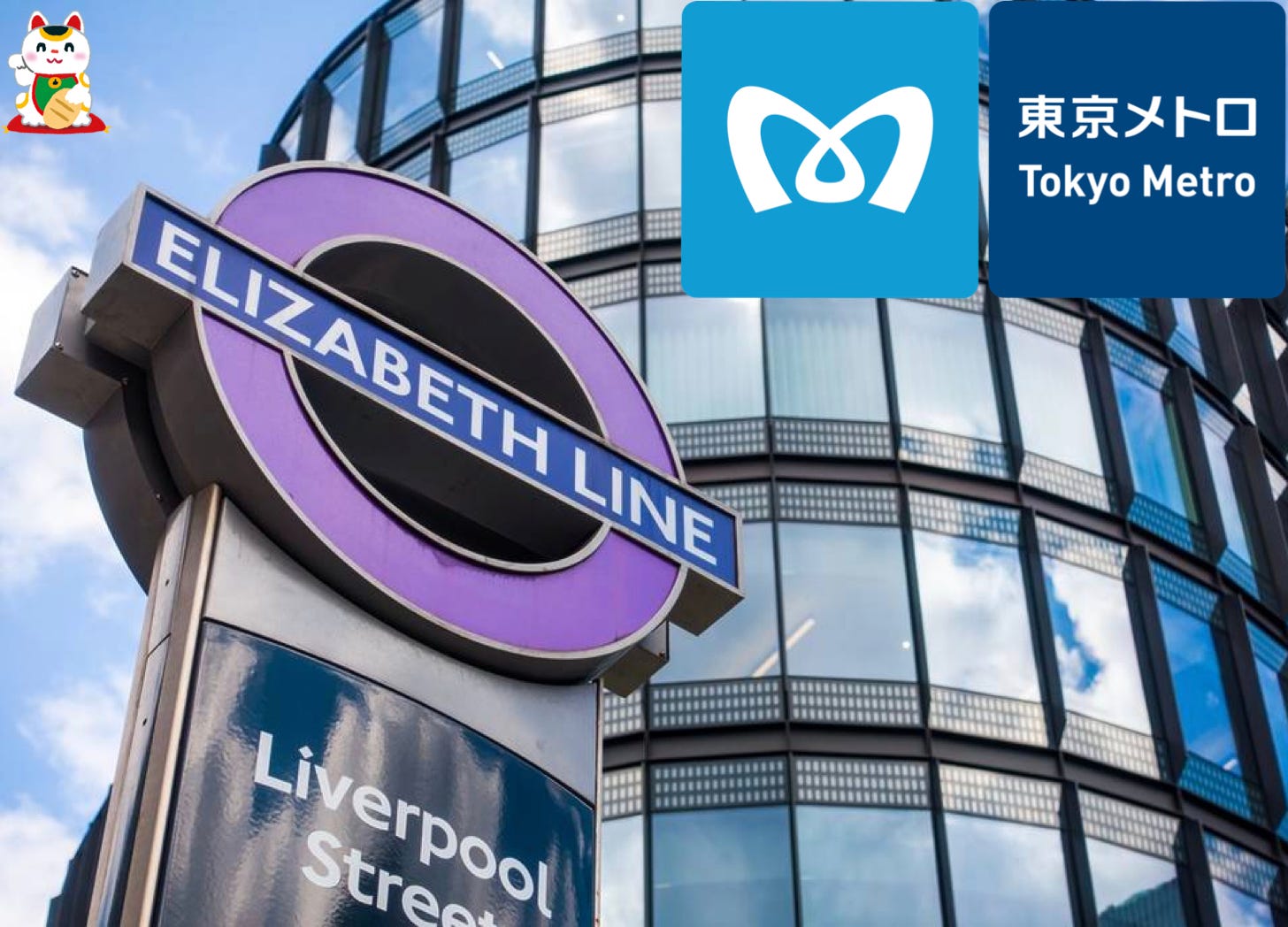The World's Best Railway Company Goes Global
Tokyo Metro just IPO:ed, and now they are embarking on becoming a household name globally by becoming the sole operator for London's Elizabeth Line
Tokyo Metro, long considered the gold standard in operational efficiency and reliability, recently made headlines with two major moves:
First, a successful IPO that popped 47% above the company’s initial IPO price, valuing it a little bit over ¥1 trillion.
Secondly, and most recently, they won a contract to operate London’s Elizabeth Line, against the fi…




